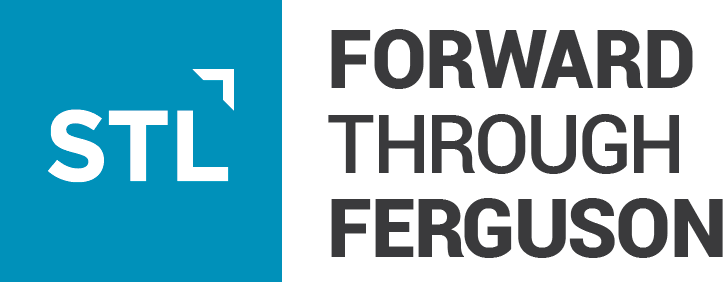Create Neutral Space
Create dedicated physical space that is considered neutral for the primary purpose of learning, interaction and training, equipped with state-of-the-art technology and facilities.
Create a Clearinghouse
Create a clearinghouse for professionally facilitated opportunities at various levels (school, inter/intra-race, private, etc.)
Utilize Shared Guidelines
Utilize a shared set of guidelines, language, and benchmarks for philanthropic organizations addressing key causes of systemic inequality.
Early Childhood Education
Ensure sufficient early childhood development and education programs to meet the demand and align all efforts around a high-quality model that produces measurable child outcomes: Birth to 3 years of age: Scale-up and integrate, for the region’s most needy children and families, evidence-based early childhood programs for a continuum of care, including but not limited…
Develop School Leader and Teacher Support Infrastructure
Create a school leader and teacher cohort model that promotes well-being by building connectivity and support among peers, facilitates lifelong learning and idea exchange and a ensures a personal experience within an environment of trust, respect and confidentiality Model: Young Presidents Organization (YPO)
Increase Health Insurance Coverage and Access
Increase insurance coverage and access for everyone: Enroll more people in the Affordable Care Act marketplace Expand Medicaid Ensure the Children’s Health Insurance Program (CHIP) is reauthorized so school-based health centers can use this as one source of funding care. To ease enrollment into CHIP, implement “presumptive eligibility” into the school-based health center settings for all children…
Establish School-Based Health Centers & Trauma-Informed Schools
Improve childhood physical and mental health: Establish School Based Health Centers: The creation of comprehensive school based health centers in the region should include access to mental health, case management and reproductive health. These centers keep kids in school (both by preventing illness and addressing behavioral health issues that lead to suspension and expulsion), in…
Coordinate Support Efforts
Develop a shared vision, community scorecard and system for coordinating important but fragmented efforts while valuing diversity, inclusion and transparency. Promoted model: Ready by 21
Build Safe Neighborhoods
Support sustained, citizen-led efforts to develop safe neighborhoods, particularly the efforts of parents and families impacted by violence, and clergy working to build community and keep watch. Support should include, but not be limited to, planning, coaching, funding and service- provider coordination
Fund Organizational Capacity and Client Outcomes
Encourage the funding community to invest in the attainment of outcomes and in capacity building versus payment for individual transactions (i.e. number of youth interviewed ). Our current and future regional issues are complex and require innovation, coordination, and collaboration.
Create an Innovative Education Hub
Create an “innovative education center/hub” capable of building an inclusive, collaborative, and multi-disciplined education environment focused on leading our region into the 21st Century from early childhood to post-secondary. All efforts should be coordinated and represented by a broad and diverse constituency including but not limited to school district leaders representing low income districts, engaged…
Create the Spirit of Missouri Fund
Create the Spirit of Missouri Fund Invest in a range of innovations that have a strong potential to impact at a large scale our state’s most vexing challenges. Broadly define innovation as any solution that has the potential to address an important issue, including new business problems, technology, new delivery systems, public policy and/or behavioral…
Preferentially Fund Job Training Programs that Show Impact
Funding for job training programs throughout the state shall be prioritized for those programs that successfully serve, place, and retain job seekers as measured by dedicated performance metrics.
Create Pathways for Lower Skilled Employees
Modify incentive programs for employers to prioritize those that have internal career ladders creating clear pathways to higher skilled jobs for lower skilled employees.
Build a Poverty-to-Professional Model for Youth Serving Organizations
Missouri youth-serving organizations shall advocate for the development of a model that empowers low-income young adults to go from poverty to professional careers in an accelerated timeframe.
Evaluate Job Training Success and Award Funding Accordingly
Incorporate the number of disconnected youth enrolled and graduated from job training programs with significant success in job placement and earnings as a metric in the performance evaluations of youth-serving organizations receiving public dollars and grant funds from local foundations in the St. Louis metropolitan region.
Align Funding to Build Capacity of CDCs
Engage area funders, non-profits, financial institutions, and private sector entities to align resources and provide financial support to encourage collaboration between community development corporations (CDCs) and build their capacity.
Enhance Collaboration Between Educational Institutions and Employers
Enhance and expand collaboration between educational institutions and employers statewide by: Establishing a regional intermediary to ensure greater public-private collaboration in assessing workforce needs and communicating those needs with K-12 institutions, job training programs, and post-secondary education institutions; Developing a regional strategy for aligning educational programs to workforce needs that has clearly established indicators to…
Empowerment Centers
Identify empowerment centers throughout the St. Louis region to concentrate financial services that provide community development banking and multigenerational financial education (e.g., Prosperity Connection).
Invest in High Functioning CDFIs
Invest in high functioning Community Development Financial Institutions (CDFIs) to support community- based investments, financial literacy, increased banking, and access to financial tools designed to promote economic mobility. Fund financial education initiatives through: Public: Neighborhood Assistance Program (NAP), Community Development Block Grants (CDBGs), municipal grants, etc. Private: Corporate grants, innovation and technological hubs, volunteers, etc….
Create Universal Child Development Accounts
Expand the current scope of the MOST 529 Matching Grant Program so it is used as a platform for progressive universal Child Development Accounts that are: statewide and automatic (opt-out).
